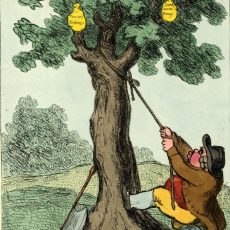Mar
1768
Middlesex
Contested
GENERAL ELECTION
Poll book data from:
Holding: Alnwick Castle
Citation: Muniments Room, YV2b
Source: London Electoral History 1700–1850.
Timeline & Key Statistics
Contexts & Remarks
Transcription completed by the London Electoral History 1700-1850 project, undertaken by Penelope J. Corfield, Edmund M. Green, and Charles Harvey.
Date of the closure of the poll: 28 March 1768
Poll book reference: London Metropolitan Archives, MR/PP/1768/001.
Candidates: John Wilkes (Radical), George Cooke (Tory), and Sir William Beauchamp Proctor (Whig).
John Wilkes, the son of a malt distiller, was described as having 'great vivacity, but in sentiment and morals rather tending to the profligate and debauched. His constant flow of mirth and humour gives him an opportunity of saying almost what he pleases of all men to all men'. In 1764, he was arrested for libellous tracts against the government and monarchy, prompting him to flee for France. He returned to England in February 1768, where he stood and was defeated in London, before making a stand for Middlesex. He is reported to have said, 'I owe money in France, am an outlaw in England, hated by the King, the Parliament, and the bench of bishops ... I must raise a dust or starve in a gaol'.
George Cooke was a returning candidate, having been elected for the county since 1750.
Sir William Beauchamp Proctor was a returning candidate, having been elected for the county since 1747.
The election returned Wilkes and Cooke as Knights of the Shire for Middlesex. The duke of Grafton attributed Wilkes' success to voter intimidation, arguing that his supporters were 'being prevented, or intimidated, from giving their votes'.
Cultural Artefacts
Poll Book
Below is a digitised version of the poll book for this election:





